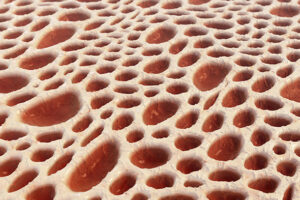Oncology
Multiple Myeloma
CAR T-Cell Therapies, Bispecific Antibodies, and Antibody Conjugates
Overview
At the 62nd ASH Annual Meeting and Exposition, important new research was presented on cellular and immune-based therapies for relapsed/refractory multiple myeloma. These therapeutic strategies include chimeric antigen receptor (CAR) T-cell therapies, bispecific antibodies, and antibody-drug conjugates.
Our featured expert, Robert Z. Orlowski, MD, PhD, was interviewed by Conference Reporter Editor-in-Chief Tom Iarocci, MD, and Dr Orlowski’s clinical perspectives on these data are presented here.
Robert Z. Orlowski, MD, PhD
|
|
"Many of these CAR T cells, bispecific antibodies, and antibody-drug conjugates are very promising and are likely to become an important part of our treatment armamentarium now and for many years to come.”
One of the hot topics at ASH 2020 was novel immunotherapies for relapsed/refractory multiple myeloma. For the sake of discussion, it is convenient to group these agents into the following 3 categories: CAR T cells, bispecific antibodies, and antibody-drug conjugates. Overall, many of these novel immunotherapies are very promising and are likely to become an important part of our treatment armamentarium now and for many years to come. We have already seen a US Food and Drug Administration approval of belantamab mafodotin (belamaf) for patients with relapsed or refractory multiple myeloma who have received at least 4 prior therapies, and other novel therapies are in development. The challenge will be to identify or predict which type of approach will work best for each individual patient.
CAR T-cell therapies continue to show great promise, and, in many cases, they achieve complete remissions with minimal residual disease negativity and a median progression-free survival in the range of 12 to 18 months. An important advantage is that they are administered as a single infusion with no follow-up chemotherapy, allowing patients to be off treatment for many months. Most CAR T-cell therapies for multiple myeloma target B-cell maturation antigen (BCMA), which is highly expressed by both normal and neoplastic plasma cells.
Abstract 131 included updated reporting on idecabtagene vicleucel (ide-cel, bb2121), which was among the first BCMA-directed CAR T-cell therapies to enter clinical trials. The CRB-401 study with ide-cel involved a highly triple-class–exposed population, and ide-cel continues to show good evidence of antitumor activity, with a median duration of response of 10.3 months for all patients; to date, half of the ongoing responders have a duration of response of greater than 2 years. The LUMMICAR-2 study updates were also reported in abstract 133, with evaluation of CT053, a CAR that incorporates a fully human BCMA-specific single-chain fragment variant. This approach has the potential to reduce the likelihood of induction of anti–CAR T-cell antibodies. Initial results are quite promising, with deep and very rapid responses, including minimal residual disease negativity.
Many other exciting updates and novel strategies for CAR T-cell engineering were presented at ASH 2020, including in abstract 134, which included data on P-BCMA-101. This approach uses a novel transposon-based system called piggyBac as a method of getting genes into CAR T cells, and it has the potential for more robust gene delivery (eg, multiple genes to target more than 1 surface protein). There is also the potential to generate more central memory T cells, which might grow with slower kinetics to favor less cytokine release syndrome and, potentially, have longer CAR T-cell persistence. Indeed, such an approach might lower toxicity, allowing for outpatient administration.
Another immune-based approach is the use of bispecific antibodies. These are conceptually similar to the monoclonal antibodies that we already use for multiple myeloma (eg, daratumumab, elotuzumab, and isatuximab) but differ in that the 2 Fab fragments bind to different antigens. Bispecific antibodies can be engineered so that one arm binds to a target on the myeloma cell and the other targets CD3 on the surface of T cells, which can bring the T cells and the cancer cell targets together, allowing for greater myeloma cell killing. TNB-3838 is one such BCMA-CD3–based bispecific antibody that may preferentially activate effector T cells, which have greater antitumor activity over regulatory T cells. One of the exciting things about CAR T cells and bispecific antibodies is that you can engineer them to go after different targets and this is potentially important if mutations in BCMA result in resistance to anti-BCMA agents.
Talquetamab is a bispecific antibody with one arm that recognizes GPRCD5, a different target antigen that is almost exclusively expressed on plasma cells. Data presented in abstract 290 suggest that this agent has encouraging clinical activity with a very manageable safety profile. Another bispecific agent, BFCR4350A, targets FcRH5, a plasma cell surface protein that is also expressed on some B cells (abstract 292). Myeloma stem cells likely resemble B cells in some ways, and high rates of expression of FcRH5 among myeloma cells would therefore make FcRH5 a potentially advantageous target. Early data with this agent in the relapsed/refractory setting appear to be promising.
Antibody-drug conjugates are antibodies that have an anticancer drug attached to the antibody so that you get antimyeloma activity from both the antibody and from the delivery of a cytotoxic drug directly into the cancer cell. Typically, the antibodies are taken up into the interior of the cancer cell, where they can induce cell death while avoiding systemic drug toxicity. Single-agent belamaf, a BCMA-targeting antibody-drug conjugate, has induced very good responses that are durable, although it is associated with some cytopenias and corneal toxicity. Belamaf is also being evaluated in combination with different novel agents in the relapsed/refractory setting. For example, a combination of belamaf with bortezomib is associated with high response rates, and these combinations are moving forward to phase 3 studies. Another antibody-drug conjugate, HDP-101, is an anti-BCMA/amanitin conjugate that has been shown in preclinical models to induce what is referred to as immunogenic cell death in myeloma cell lines and the suggestion of immunologic memory in mice that prevented tumor reformation. This agent also may work even better against myeloma cells with 17p deletion, which is a high-risk feature that normally makes cells less sensitive to treatment.
In the future, immunotherapeutic agents such as these are likely to be used in the relapsed/refractory setting at first, but they will probably move rapidly into second- and third-line settings, where we hope that they will improve outcomes.
References
Alsina M, Shah N, Raje NS, et al. Updated results from the phase 1 CRB-402 study of anti-BCMA CAR-T cell therapy bb21217 in patients with relapsed and refractory multiple myeloma: correlation of expansion and duration of response with t cell phenotypes [abstract 130]. Abstract presented at: 62nd American Society of Hematology Annual Meeting and Exposition; December 5-8, 2020.
Chari A, Berdeja JG, Oriol A, et al. A phase 1, first-in-human study of talquetamab, a G protein-coupled receptor family C group 5 member D (GPRC5D) x CD3 bispecific antibody, in patients with relapsed and/or refractory multiple myeloma (RRMM) [abstract 290]. Abstract presented at: 62nd American Society of Hematology Annual Meeting and Exposition; December 5-8, 2020.
Cohen AD, Harrison SJ, Krishnan A, et al. Initial clinical activity and safety of BFCR4350A, a FcRH5/CD3 T-cell-engaging bispecific antibody, in relapsed/refractory multiple myeloma [abstract 292]. Abstract presented at: 62nd American Society of Hematology Annual Meeting and Exposition; December 5-8, 2020.
Costello CL, Cohen AD, Patel KK, et al. Phase 1/2 study of the safety and response of P-BCMA-101 CAR-T cells in patients with relapsed/refractory (r/r) multiple myeloma (MM) (PRIME) with novel therapeutic strategies [abstract 134]. Abstract presented at: 62nd American Society of Hematology Annual Meeting and Exposition; December 5-8, 2020.
Ghosh A, Mailankody S, Giralt SA, Landgren CO, Smith EL, Brentjens RJ. CAR T cell therapy for multiple myeloma: where are we now and where are we headed? Leuk Lymphoma. 2018;59(9):2056-2067. doi:10.1080/10428194.2017.1393668
Kumar SK, Baz RC, Orlowski RZ, et al. Results from Lummicar-2: a phase 1b/2 study of fully human B-cell maturation antigen-specific CAR T cells (CT053) in patients with relapsed and/or refractory multiple myeloma [abstract 133]. Abstract presented at: 62nd American Society of Hematology Annual Meeting and Exposition; December 5-8, 2020.
Lin L, Cho S-F, Xing L, et al. Preclinical evaluation of CD8+ anti-BCMA mRNA CAR T cells for treatment of multiple myeloma. Leukemia. 2020 Jul 6. doi:10.1038/s41375-020-0951-5
Lin Y, Raje NS, Berdeja JG, et al. Idecabtagene vicleucel (ide-cel, bb2121), a BCMA-directed CAR T cell therapy, in patients with relapsed and refractory multiple myeloma: updated results from phase 1 CRB-401 study [abstract 131]. Abstract presented at: 62nd American Society of Hematology Annual Meeting and Exposition; December 5-8, 2020.
Pahl A, Lutz C, Hechler T. Amanitins and their development as a payload for antibody-drug conjugates. Drug Discov Today Technol. 2018;30:85-89. doi:10.1016/j.ddtec.2018.08.005
Raje N, Berdeja J, Lin Y, et al. Anti-BCMA CAR T-cell therapy bb2121 in relapsed or refractory multiple myeloma. N Engl J Med. 2019;380(18):1726-1737. doi:10.1056/NEJMoa1817226
Richardson PG, Nooka A, Quach H, et al. Dreamm-5 platform trial: belantamab mafodotin (belamaf) in combination with four different novel agents in patients with relapsed/refractory multiple myeloma (RRMM) [abstract 2299]. Abstract presented at: 62nd American Society of Hematology Annual Meeting and Exposition; December 5-8, 2020.
Rodriguez C, D’Souza A, Shah N, et al. Initial results of a phase I study of TNB-383B, a BCMA x CD3 bispecific T-cell redirecting antibody, in relapsed/refractory multiple myeloma [abstract 293]. Abstract presented at: 62nd American Society of Hematology Annual Meeting and Exposition; December 5-8, 2020.
Rodríguez-Lobato LG, Ganzetti M, Fernández de Larrea C, Hudecek M, Einsele H, Danhof S. CAR T-cells in multiple myeloma: state of the art and future directions. Front Oncol. 2020;10:1243. doi:10.3389/fonc.2020.01243
Yu B, Jiang T, Liu D. BCMA-targeted immunotherapy for multiple myeloma. J Hematol Oncol. 2020;13(1):125. doi:10.1186/s13045-020-00962-7
This information is brought to you by Engage Health Media and is not sponsored, endorsed, or accredited by the American Society of Hematology.











